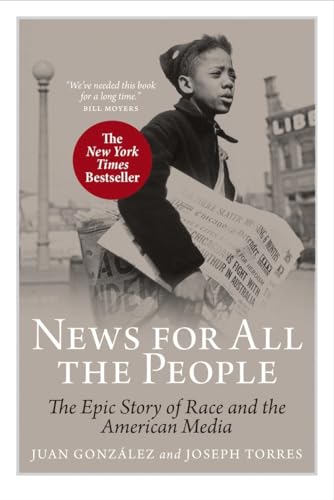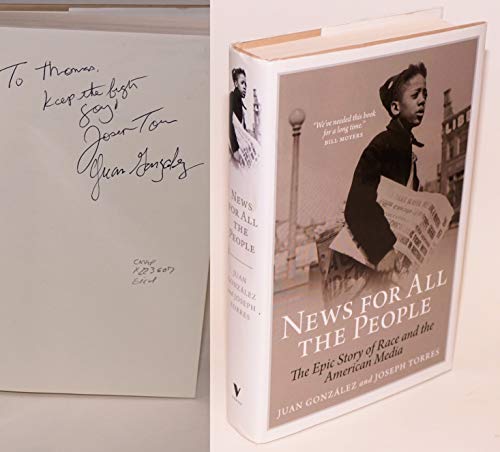gonzález juan torres joseph (5 Ergebnisse)
Suchfilter
Produktart
- Alle Product Types
- Bücher (5)
- Magazine & Zeitschriften (Keine weiteren Ergebnisse entsprechen dieser Verfeinerung)
- Comics (Keine weiteren Ergebnisse entsprechen dieser Verfeinerung)
- Noten (Keine weiteren Ergebnisse entsprechen dieser Verfeinerung)
- Kunst, Grafik & Poster (Keine weiteren Ergebnisse entsprechen dieser Verfeinerung)
- Fotografien (Keine weiteren Ergebnisse entsprechen dieser Verfeinerung)
- Karten (Keine weiteren Ergebnisse entsprechen dieser Verfeinerung)
- Manuskripte & Papierantiquitäten (Keine weiteren Ergebnisse entsprechen dieser Verfeinerung)
Zustand Mehr dazu
- Neu (1)
- Wie Neu, Sehr Gut oder Gut Bis Sehr Gut (1)
- Gut oder Befriedigend (2)
- Ausreichend oder Schlecht (Keine weiteren Ergebnisse entsprechen dieser Verfeinerung)
- Wie beschrieben (1)
Einband
Weitere Eigenschaften
- Erstausgabe (2)
- Signiert (2)
- Schutzumschlag (2)
- Angebotsfoto (Keine weiteren Ergebnisse entsprechen dieser Verfeinerung)
Sprache (2)
Gratisversand
- Kostenloser Versand nach USA (Keine weiteren Ergebnisse entsprechen dieser Verfeinerung)
Land des Verkäufers
Verkäuferbewertung
-
How Long Must We Wait? The Fight for racial and Ethnic Equality in the American News Media.
Verlag: UNITY, 2004, 21 Pp., 2004
Anbieter: Eryops Books, Stephenville, TX, USA
Soft Cover. Zustand: Near Fine. Softcovers; in near fine condition.
-
News for All the People: The Epic Story of Race and the American Media (Signed)
Anbieter: Tsunami Books, Eugene, OR, USA
Signiert
Zustand: NF. ISBN: 9781844671113 Signed. Paperback; 453 pages; flat-signed by Juan Gonzalez on title page. Clean, unmarked copy. Near Fine.
-
News for All the People: The Epic Story of Race and the American Media
Anbieter: Books From California, Simi Valley, CA, USA
Erstausgabe
hardcover. Zustand: Good. Zustand des Schutzumschlags: Includes dust jacket. First Edition. first edition book, includes the dust jacket.
-
News for All the People: The Epic Story of Race and the American Media
Anbieter: Revaluation Books, Exeter, Vereinigtes Königreich
EUR 45,43
EUR 14,19 für den Versand von Vereinigtes Königreich nach USAAnzahl: 1 verfügbar
In den WarenkorbPaperback. Zustand: Brand New. 1st edition. 476 pages. 8.20x5.40x1.40 inches. In Stock.
-
News for All the People; The Epic Story of Race and the American Media
Verlag: Verso [the imprint of New Left Books], London, 2011
ISBN 10: 1844676870 ISBN 13: 9781844676873
Sprache: Englisch
Anbieter: Ground Zero Books, Ltd., Silver Spring, MD, USA
Erstausgabe Signiert
Hardcover. Zustand: Very good. Zustand des Schutzumschlags: Very good. [8], 453, [3] pages. Illustrations. Notes. Index. Signed by both authors on the title page. Juan González is an American progressive broadcast journalist and investigative reporter. He was also a columnist for the New York Daily News from 1987 to 2016. He frequently co-hosts the radio and television program Democracy Now! with Amy Goodman. Whilst working for the New York Daily News, González won his first George Polk Award in 1998 for "unflinching" investigative reporting. He is former president of the National Association of Hispanic Journalists, for which he created the Parity Project, an innovative program designed to help news organizations recruit and retain Hispanic reporters and managers. In 2008, The National Association of Hispanic Journalists inducted González into the organization's Hall of Fame. News for All the People reveals how racial segregation distorted the information Americans received from the mainstream media. It unearths numerous examples of how publishers and broadcasters actually fomented racial violence and discrimination through their coverage. And it chronicles the influence federal media policies exerted in such conflicts. It depicts the struggle of Black, Latino, Asian, and Native American journalists who fought to create a vibrant yet little-known alternative, democratic press, and then, beginning in the 1970s, forced open the doors of the major media companies. The writing is story-driven, and replete with memorable portraits of journalists and media executives. It weaves back and forth between the corporate and government leaders who built our segregated media system and those who rebelled against that system. Based on years of archival research and reporting and written by two leading advocates for a more inclusive and democratic media system, First Published by Verso 2011 [stated]. First Printing [stated].




